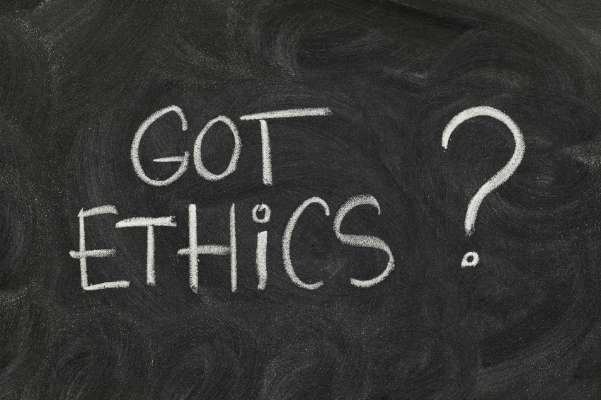Sudhanshu Sarangi
Standing before the Berlin wall, or what remains of it, I ended up thinking: Would I have joined the East German secret police, the ‘Stasi’, if I were born in erstwhile East Germany or would I have been part of the resistance conspiring to demolish the wall? For that matter, what choices would we have made in British India: Join the freedom movement, or serve foreign rulers as salaried employees; be onlookers and stand by to benefit from eventual freedom, without taking any risk in joining the Independence struggle? Hypothetical, as these may sound, we are called upon to make these ethical decisions every single day.
The ability to make an ethical choice and living or even dying for it differentiates Great men from the masses. Mandela was in solitary confinement for 27 years and yet never gave up; once released from long incarceration he bore no grudge and sought no revenge. Gandhi had many choices, of course one of which led him to prolonged imprisonment, repeated fasting and ultimately, assassination.
Each one of us has a set of core values and layers of other values; ethics is structured like an onion. If a value is in the outer layer, it gets easily peeled off. A value located in a deeper layer would require higher inducement or pressure to make way. Core values cannot peel off. A person may resist a bribe of a few thousand rupees, the outer veneer; but succumb to a larger consideration, a more hidden layer; cannot be bought over, the core. The challenge is to build emotional resilience to withstand counter-forces and make values core to our commitments.
We are often told, in rather simplistic ways, that strong moral values should be inculcated from childhood. Despite parrot-like learning of moral precepts, we find it hard to make these principles core of our real-life choices. Society can remain in permanent denial of the complexity around ethical dilemmas: convert moral precepts into various consumable forms such as sayings and epics. Second, surrender to God with the hope that Almighty will guide us on the moral path.
The constitution and rule of law can bring to book violators of what society perceives as ‘ethical’. But, the efficacy of the legal system requires, infringements to be of manageable proportion, not widespread. We have an overload of violations beyond the coping ability of systems, making institutions of law dysfunctional. Ultimately, the watchdog bodies have themselves become morally hollow.
Lawyers, judges, accountants, doctors, police officers are part of the machinery that forms the backbone of advanced societies. They are governed under codes of their respective professional bodies that set standards and enforce compliance. In India similar organisations lack the teeth and have been unsuccessful. Associations and unions are mostly focused on securing benefits. Codes of conduct exist on paper. The ethical crises of different professions have been aggregating at the larger social level creating a mess.
If most voters get used to bribes, safeguards cannot be found. Extensive use of money will corrode the entire democratic system. If doctors are unethical, patients cannot be insulated from blackmail and exploitation. If police officers arrest innocent persons, bail can be granted by courts, but not before the life of the person is shattered; an acquittal may take years. Examples can be taken from any sector of life and the conclusion will be that we need ethical standards at all levels. An infringement of ethics at one level cannot be remedied at a higher level. We may be getting blinded by familiarity with a hierarchical caste system and ending up concluding that a superior authority, because of higher virtue, can remedy the current crisis. In practical terms, despite the many adhering to high ethical standards at personal levels, assurance at the level of society is poor.
Ask the voter who accepts a bribe for exercising his or her right to vote and the answer you get is: “Everyone else is accepting money, even the politicians make money, why not me?” Ask political parties and you are told, “Our rivals will overtake us.” Ask the public servant and comes the answer, “I will be out of the race from coveted positions.” Every person has a justification for moral transgressions and largely it seems to be, “I am helpless, as everyone else is unethical.” India’s situation is like the prisoners’ dilemma in Game Theory. There are two prisoners held separately and they are not able to communicate with each other. The prosecutors do not have enough evidence to secure a conviction. The only way they can get a conviction is if one or both depose against the other. The dilemma then has three outcomes: First, both keep quiet and get minimum punishment; second, only one speaks, so the other is punished; third, both speak and are convicted. In societies with greater adherence to normative standards, people assume that others will also be ethical. In India, ceteris paribus, the assumption is “expect everyone to play a game with you; do not be surprised by unethical conduct”.
Our society is going through a deep ethical crisis. There is cynicism all around with a lot of misplaced trust on higher echelons, external watchdogs and oversight mechanisms and further tightening of laws as solutions to large-scale transgressions of ethical standards. Instead of being ostrich-like, each class of professionals needs to now transparently admit to unethical practices within its folds and find practical ways to ensure ethical conduct by its members. We have been frivolously pontificating, often fully aware of the futility, as if the problem is simple, but the challenge is akin to another freedom movement.
The writer is an IPS officer, views are personal.

